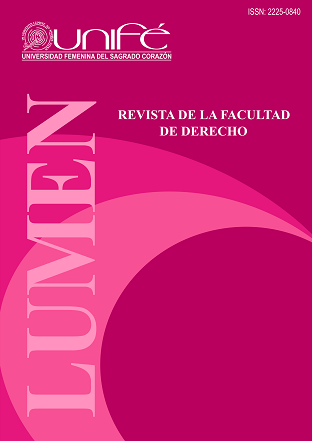Administrative sanctioning procedure temporary closure of commercial establishment a long way to travel
DOI:
https://doi.org/10.33539/lumen.2019.v15n2.1816Keywords:
Decisions, incentives, disjunctive, Public Administration, administrative sanction law, temporary closure, temporary measure, precautionary measure, privilege of subsequent supervision, subsequent supervision.Abstract
This paper analyzes the situation following the closure of a commercial establishment, ordered by the Public Administration, and the procedure that applicants must follow, in order to be able to open the establishment again for business and continue with their trading activities.
The existence of incentives that influence people's decision-making in these situations and thus regulate their behavior –sometimes to follow the regulatory administrative provisions, and at others to simply meet their needs–, will be analyzed. We identify that the procedure after the temporary closure order means a long and dark path that the inspected applicant is obliged to follow. This often constitutes a perverse incentive that motivates the applicant to disobey.
Likewise, the offense detection factor can be seen as an indicator of the deficiency of the State to identify the offenders and to require them to comply with the corresponding payment of fines. This also creates incentives that motivate those applicants to disobey the closure order.
Finally, we propose as an alternative solution, the application of the principle of privilege of subsequent supervision, established in paragraph 1.16 of Article IV of the Preliminary Title of Law No. 27444, Ley del Procedimiento Administrativo General (General Administrative Procedure Law), understood as the right of the authority to verify the authenticity of the statements, documents and information provided by applicants, within the framework of administrative procedures, which constitutes an efficient mechanism for the situation under analysis, since if so, the slowness with which the State generally operates at the time of exercising its power of supervision will not prejudice the fundamental rights of those applicants.









